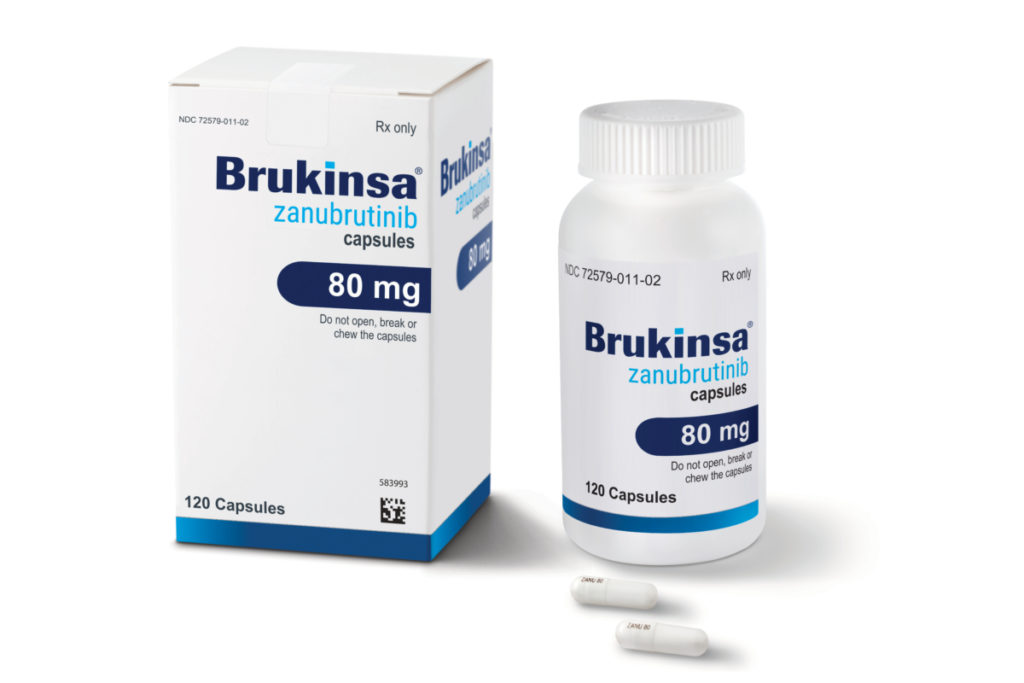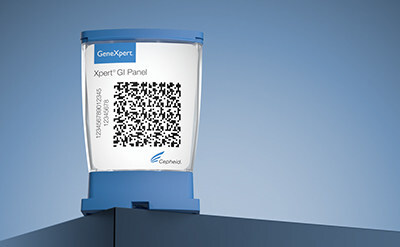The US Food and Drug Administration (FDA) recently granted approval for the Bruton tyrosine kinase inhibitor (BTKi) Brukinsa (zanubrutinib) based on the results from two Phase III clinical trials. Brukinsa is now approved to treat adults with chronic lymphocytic leukemia (CLL) or small lymphocytic lymphoma (SLL).
Brukinsa is also indicated to treat adults with Mantle cell lymphoma, Waldenström’s macroglobulinemia and relapsed or refractory marginal zone lymphoma.
This is the fourth US FDA approval that BeiGene has received for Brukinsa since 2019.
Treating Chronic Lymphocytic Leukemia and Small Lymphocytic Lymphoma
Chronic lymphocytic leukemia, or CLL, is one of the most common types of leukemia, a form of blood cancer, that often affects older people. CLL is caused by an accumulation of B cells within the bone marrow. The majority of cases are due to a deletion in the 13q14.3 (del[13q]), del(11q), del(17p), or trisomy 12 chromosomes, most commonly del(13q). It may cause symptoms such as weakness, lymph node swelling, or easy bruising or bleeding, but is often caught during routine blood tests. Diagnosis is confirmed by a differential complete blood count and genetic testing.
CLL and small lymphocytic lymphoma, or SLL, are considered the same disease; however, in CLL, cancer cells are located in the blood and bone marrow, whereas in SLL, they are found in the lymph nodes. Treatment selection is determined by age, disease severity, comorbidities and the presence or absence of certain genetic mutations. As with many cancers, CLL and SLL are more difficult to treat in the relapse/refractory setting.
Tyrosine Kinase Inhibitors for Cancer Treatment
Tyrosine kinases, or TKs, are a group of signaling molecules that affect multiple downstream proteins. Since TKs affect many different cellular functions, such as proliferation, differentiation and survival, tyrosine kinase inhibitors (TKIs) have been studied for their anticancer properties. Several TKIs have been approved to treat solid tumors, such as non-small cell lung cancer, melanoma and breast cancer, as well as blood cancers, including acute lymphoblastic leukemia and chronic myelogenous leukemia.
Brukinsa is a small-molecule inhibitor of Bruton tyrosine kinase (BTK), which is a tyrosine kinase encoded by the BTK gene. BTK plays an important role in the immune system by regulating B cell receptor signaling through its effects on the development and maturation of B cells. BTK is expressed in many B cell malignancies and inhibiting its activity has produced anti-tumor effects.
XTALKS WEBINAR: Review of Key Trends for Life Science Commercial Teams in 2023
Register for this free on-demand webinar to learn about the latest trends in sales and marketing campaigns that could help bolster commercial success for life science companies this year. This includes a greater focus on digital campaigns and diversifying marketing campaigns with race and ethnicity insights.
Brukinsa (zanubrutinib) Clinical Trial Results and Price of Brukinsa
Two global randomized, multicenter, head-to-head Phase III trials (SEQUOIA and ALPINE) evaluated the safety and efficacy of Brukinsa (zanubrutinib) compared to other medications used to treat patients with CLL or SLL. In the SEQUOIA study (n = 589), Brukinsa was compared to bendamustine (a type of chemotherapy) plus rituximab (a monoclonal antibody) in CLL or SLL patients who had not received prior treatment, whereas in the ALPINE study (n = 652), Burkinsa was compared to ibrutinib (another type of BKT inhibitor) in relapsed/refractory (R/R) CLL or SLL patients who had received prior treatment.
Results from the SEQUOIA study demonstrated a significant progression-free survival benefit (Hazard Ratio: 0.42 [95 percent CI: 0.28, 0.63]; p < 0.0001) in CLL or SLL patients taking Brukinsa with a median follow-up of 26.2 months compared to those taking bendamustine and plus rituximab. Brukinsa also showed a superior overall response rate (ORR; 80.4 percent vs 72.9 percent; p = 0.0264) in the ALPINE study in R/R CLL or SLL patients compared to those taking ibrutinib. Results from the ALPINE study have been published in the New England Journal of Medicine.
Based on a pooled safety analysis of CLL patients treated with Brukinsa (n = 1,550), the most common adverse reactions (≥ 30 percent) were decreased neutrophil count (42 percent), upper respiratory tract infection (39 percent), decreased platelet count (34 percent), hemorrhage (30 percent) and musculoskeletal pain (30 percent), which is consistent with previous studies.
The recommended total daily dose of Brukinsa is 320 mg. Brukinsa is administered orally once daily (four 80 mg capsules) or twice daily (two doses of 160 mg twice daily, with two 80 mg capsules for each dose). Dose adjustments should be made in patients also taking CYP3A inhibitors or inducers and those with severe hepatic impairment. Warnings and precautions include hemorrhage, infections, cytopenias, second primary malignancies, cardiac arrhythmias and embryo-fetal toxicity.
Depending on insurance carriers, Brukinsa may cost around $15,264 for a supply of 120 capsules.
Additional Clinical Applications
Beigene is also investigating Brukinsa (zanubrutinib) as a possible treatment for R/R diffuse large B-cell lymphoma, B-cell non-Hodgkin lymphoma, and follicular lymphoma either as monotherapy or combination therapy with other cancer treatments.
“Thanks to research that has delivered innovative and effective medicines, people with CLL can remain on therapy for years so tolerability is an important consideration. I’m pleased that the approval of zanubrutinib provides a new BTKi option for people with CLL/SLL, with demonstrated efficacy as well as being very well tolerated long-term,” said Brian Koffman, MD, CMO/EVP at CLL Society, in BeiGene’s press release.












Join or login to leave a comment
JOIN LOGIN